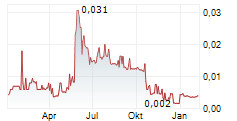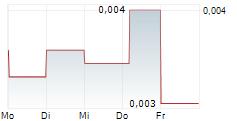
Lund, September 10 2024 - Active Biotech (NASDAQ STOCKHOLM: ACTI) today announced an update to the ongoing clinical phase I biodistribution study of laquinimod eye drops in patients undergoing vitrectomy.
A proprietary formulation of laquinimod for corneal application was developed, taking the specific physico-chemical characteristics of this agent into account, to facilitate that a clinically relevant intraocular therapeutic concentration of laquinimod can be obtained.
The study, which is being conducted by principal investigator Professor Dr Nguyen at the Byers Eye Institute, Stanford University, Palo Alto, CA, US, aims to evaluate if laquinimod when administered as eye drops reaches the anterior and the posterior chambers of the eye, to support further development in patients with Uveitis.
During a 14-day preoperative administration of laquinimod as eye drops, all the three subjects in the first dose group received 0.6mg laquinimod once daily. All subjects, had significant concentrations of laquinimod in vitreous as well as in the anterior chamber fluid when sampled during surgery. This supports distribution of laquinimod from the cornea and sclera into the anterior chamber and onwards to the posterior parts of the eye. These data are also consistent with results previously obtained in rabbits and in an in vitro bovine corneal model of laquinimod penetration into the eye.
The bioanalytical results also show that administration of laquinimod eye drops leads to quantities of laquinimod in vitreous humour at therapeutically relevant concentrations, as determined from prior studies in multiple sclerosis patients. Anecdotally, a potent anti-inflammatory ocular effect of laquinimod was noted in the anterior chamber of one patient following 14-days of application as per the protocol, in absence of any concomitant corticosteroid treatment.
These initial findings are important to the further development of laquinimod for ocular disorders, as they unequivocally establish trans-corneal-scleral passage of laquinimod. The current study design involves enrolling additional patients at different dose-levels with top-line results expected in late 2024/early 2025.
"It is tremendously satisfying to learn that topical laquinimod, even at a low dose, can have the ability to penetrate into the anterior chamber, and more importantly, the vitreous of human eyes," said Quan Ðông Nguyen, MD, Professor of Ophthalmology, Medicine and Pediatrics at the Byers Eye Institute and the Stanford University School of Medicine. "The potential applications of a topical formulation and delivery that reaches the vitreous and possibly posterior segment are quite significant and can lead to very important and novel therapeutic implications. Our talented team at Byers and Stanford is very excited to proceed to complete the Study."
For further information, please contact:
Helén Tuvesson, CEO, +46 46 19 21 56, helen.tuvesson@activebiotech.com
Hans Kolam, CFO, +46 46 19 20 44, hans.kolam@activebiotech.com
About Active Biotech
Active Biotech AB (publ) (NASDAQ Stockholm: ACTI) is a biotechnology company that develops first-in-class immunomodulatory treatments for oncology and immunology indications with a high unmet medical need and significant commercial potential. Active Biotech currently holds three projects in its portfolio, of which tasquinimod and laquinimod are wholly owned small molecule immunomodulators with a mode of action that includes modulation of myeloid immune cell function. The projects are in clinical development for hematological malignancies and inflammatory eye disorders, respectively. The company's core focus is on the development of tasquinimod in myelofibrosis, a rare blood cancer, where clinical proof-of-concept studies are being prepared. Also ongoing is a clinical Phase Ib/IIa study in multiple myeloma. Laquinimod is in clinical development for the treatment of non-infectious uveitis. A clinical phase I program with a topical ophthalmic formulation is ongoing to support phase II development together with a partner. The third pipeline project is naptumomab, a targeted anti-cancer immunotherapy, partnered to NeoTX Therapeutics, which is in a phase Ib/II clinical program in patients with advanced solid tumors. Please visit www.activebiotech.com for more information.
About laquinimod
Laquinimod is a first-in-class immunomodulator that promotes immune tolerance and reduces the pro-inflammatory and angiogenic response by targeting of the myeloid cell compartment. Laquinimod is developed as a new treatment for inflammatory eye disorders in the first step non-infectious uveitis. Laquinimod was previously studied in patients with neurodegenerative and inflammatory diseases, including a phase III randomized study program in multiple sclerosis (MS) patients. The clinical safety and tolerability of laquinimod is well known and preclinical data in disease models support the use of laquinimod for the treatment of severe eye disorders including uveitis and eye disorders with abnormal vascularization.
For more information about the study please see clinicaltrials.gov NCT06161415.
This information is information that Active Biotech is obliged to make public pursuant to the EU Market Abuse Regulation. The information was submitted for publication, through the agency of the contact persons set out above, at 2024-09-10 08:30 CEST.


